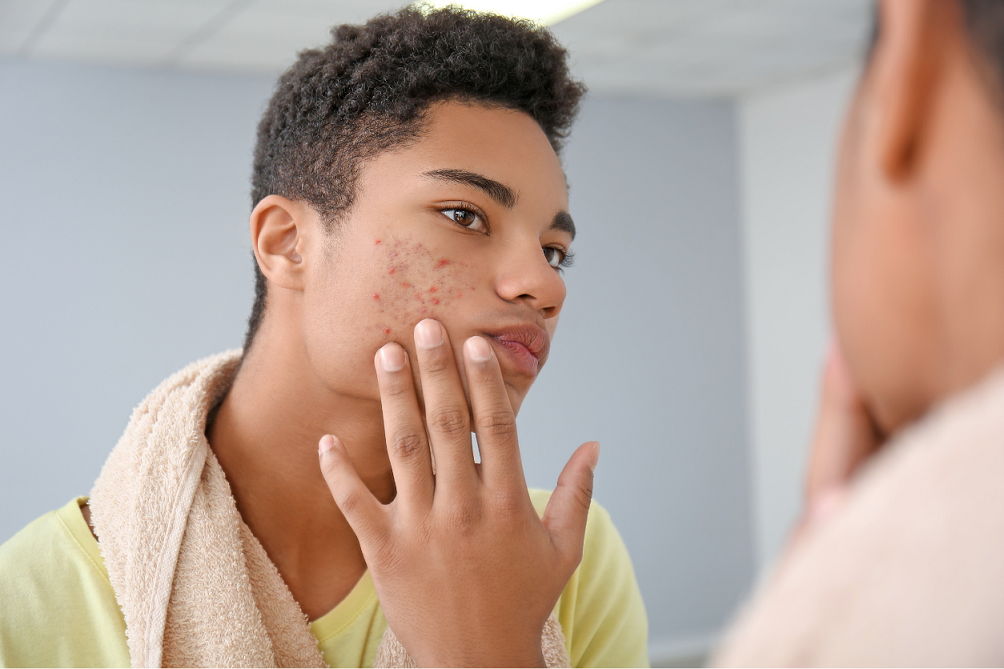Puberty is when your body starts making more hormones, which trigger changes like growing taller and developing body hair, and can affect your mood. Puberty usually starts between ages 8 and 14, but everyone is different, so it can happen earlier or later. It’s a natural process, and although some changes can feel confusing or awkward, they’re completely normal.
Here are some of the changes you might experience during puberty:
-
Growth spurts: You’ll grow taller, and your body shape might change.
-
Body hair: Hair will start growing under your arms, on your legs, and around your genitals. Some people also grow facial hair.
-
Skin changes: Your skin might become oilier, and you may start to get spots or acne.
-
Voice changes: Your voice will get deeper, and you might notice your voice "cracking" as it changes. Typically, boys’ voices deepen more than girls’.
-
Breast development (for girls): Breasts will start to grow, and it’s normal for one to grow faster than the other at first.
-
Periods (for girls): You’ll start having periods, which is when blood is released from the lining of the uterus. This usually happens every month. You can read more on our Periods page. Periods.
-
Muscle growth (for boys): You may notice your muscles getting bigger, and your shoulders becoming broader.
-
Mood changes: Hormones can affect your emotions, making you feel happy one minute and upset the next. This is normal and will level out as you get older.
-
Personal hygiene: Your body will sweat more during puberty, so it’s important to shower regularly, use deodorant, and wear clean clothes to stay fresh.
-
Managing emotions: If you’re feeling overwhelmed, talking to someone you trust can help. Whether it’s a friend, parent, teacher, or school nurse, sharing your feelings can make a difference.
-
Periods: If you’ve started your period, it’s helpful to keep pads or tampons with you just in case. Learning about how to track your cycle can help you be prepared each month.
-
Acne: If you start getting spots or acne, try washing your face regularly with a gentle cleanser. If your acne bothers you, speak to a GP or school nurse for advice.
-
Childline provides advice and information on puberty. Puberty and your body – Childline
-
And you can also read more about puberty on the Brook website. Puberty – Brook.
